Minnesota is known for being an environmentally friendly state, and Hennepin County offers a variety of environmental programs. Families wishing to make more sustainable choices may not always know where to start, and some eco-friendly tips won’t work for every family (e.g., if you live in an apartment, you can’t install a low-flow showerhead or change your water heater settings yourself, though you may be able to encourage your property manager to take these actions for your property.)
This article will provide a number of simple ways to get started developing eco-friendly habits for the whole family, including some ways to motivate your kids to join in.
Primary Source: Growing Up Green
1. Reduce your electricity use
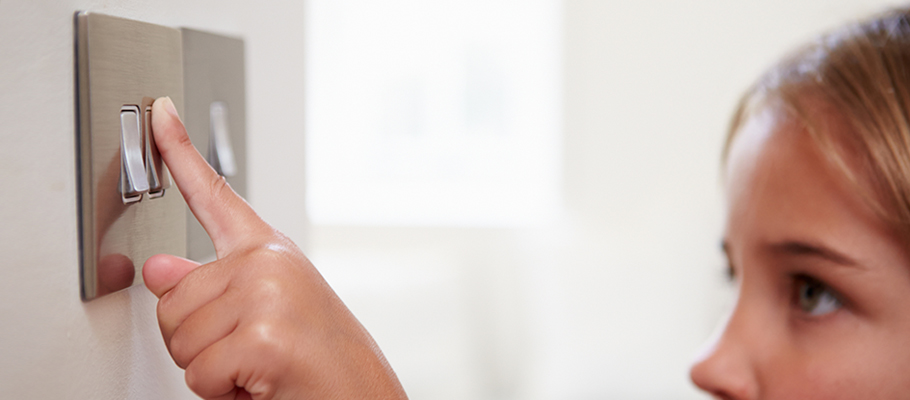
Electricity use is a great place to begin teaching kids about conservation. When they’re old enough, talk to them about the importance of conserving electricity to keep from wasting natural resources and to save money.
Help them build eco-friendly habits when they’re young by encouraging them to turn off the lights when they leave the room or turn off the television when they’re not watching it. Also, remind them not to stand in front of the refrigerator with the door open. (Did you know as much as one-third of the cold air inside escapes each time you open the door?) Another simple tip is to unplug small appliances when they’re not in use.
2. Conserve water
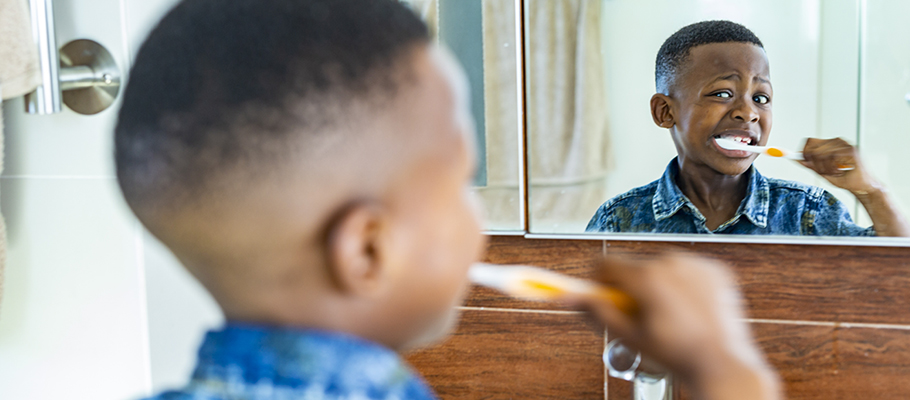
According to the EPA, a family of four uses 400 gallons of water each day. So, conserving water is another area for families to be more eco-friendly.
Even young kids can learn to turn off the faucet while brushing their teeth. And everyone can use less water by taking shorter showers or filling the tub just partway for a bath.
Here are a few more eco-friendly tips for your family to try:
- Teach kids to fill their water cup halfway (they can always get more if they’re still thirsty)
- Use leftover clean water to water your plants, garden, or fill your pet’s water dish
- Only run the dishwasher or washing machine when you have full loads (which is rarely a problem for families)
3. Recycle as a family
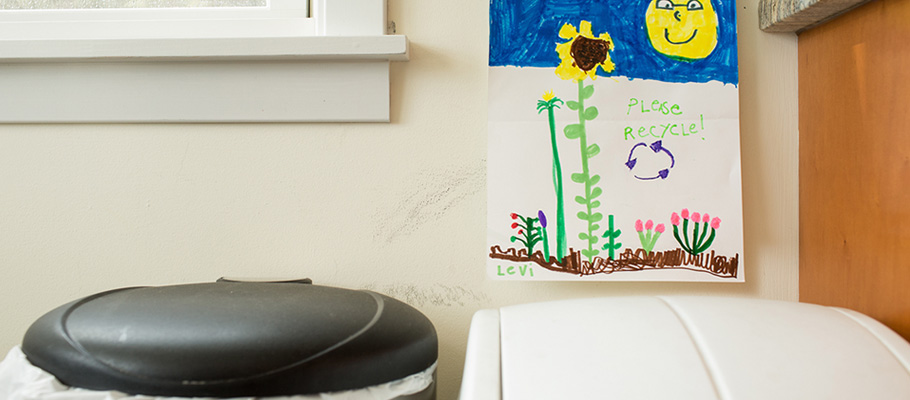
Make sure everyone in the family knows what can be recycled and why it’s important. Better yet, turn recycling into a game and make it fun for your kids to build recycling habits early. For example:
- Give each of your kids their own recycling container and challenge them to fill their container appropriately for a prize.
- Build the idea of conservation into your recycling game learning about what items can be recycled in each room of the house.
- Combine arts and crafts with recycling. Ask your kids to build something out of recyclable materials and give out prizes based on how many materials they use. They could also create their own personal recycling bins for their bedrooms.
If you want to take a more straightforward approach, you can also incorporate recycling into household chores. Younger kids can easily carry most recyclable materials to your collection bins, and older kids can be put in charge of setting out your bin on recycling day.
Interested in learning more about recycling and reuse? Check out our Residential Recycling Page!
4. Skip single-use items; reuse instead
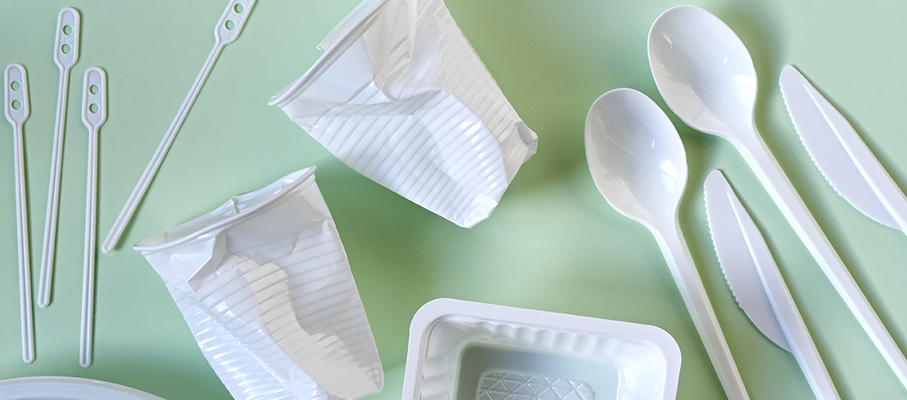
You’ve probably heard the phrase “single-use plastics” a lot in recent years. That’s because more people and organizations are discovering just how much waste these products generate. As a result, many restaurants and coffee shops no longer offer single-use straws.
Your family can join this eco-friendly effort by eliminating or buying less of these single-use products:
- Plastic water bottles
- Paper and plastic cups
- Plastic utensils
- Plastic baggies/sandwich bags
- Paper towels
- Paper napkins
Reducing single-use products helps in more ways than you may think. First, you’re helping to conserve the energy and materials used to manufacture the product in the first place. Plus, you’re reducing the total amount of waste your family generates. And if you reuse the item over and over, you’re reducing your overall environmental impact.
Related Reading: Replacing Disposables with Reusables
5. Buy used goods

Whenever possible, purchase used items instead of new ones. There are many high-quality retailers in Hennepin County that sell used merchandise, including books, clothing, household goods, electronics sports equipment, and much more.
Buying used items eliminates all of the resources required to manufacture, package and distribute new products. But, the best part about this eco-friendly tip is that it’s wallet-friendly, too. For more information, read our blog, “The 10 Best Things to Buy Used”.
6. Go meatless one day a week
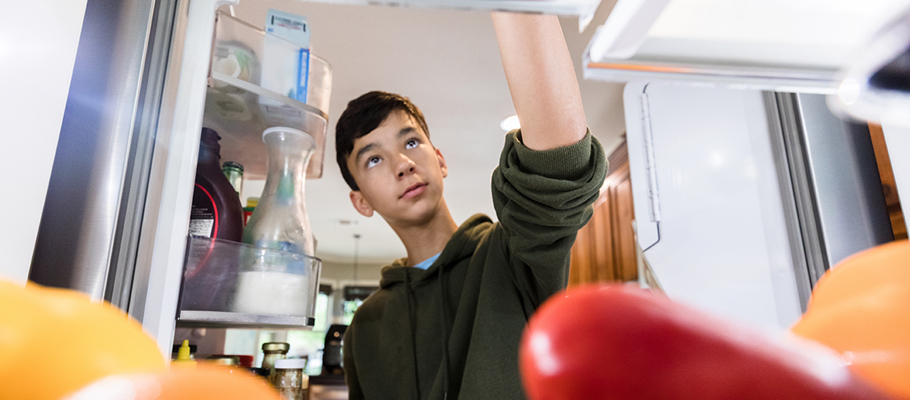
Meat, dairy and egg farming all contribute to greenhouse gases. So, another way to reduce your family’s environmental impact is to make meatless meals one day each week.
Over the course of a year, eating meatless just once per week can add up. According to the Monday Campaign, skipping one serving of beef every Monday for a year saves the equivalent emissions to driving 348 miles in a car.
A related eco-friendly habit for families is to minimize food waste – it’s the largest stream of material in American’s trash.
Small changes; big impact
If you’re interested in making more sustainable choices this year, this list of eco-friendly tips is a good place to start. Just think what a difference you’ll make as your family gets used to reducing its consumption, recycling, and reusing items whenever possible. Your small changes will have a significant environmental impact over time.